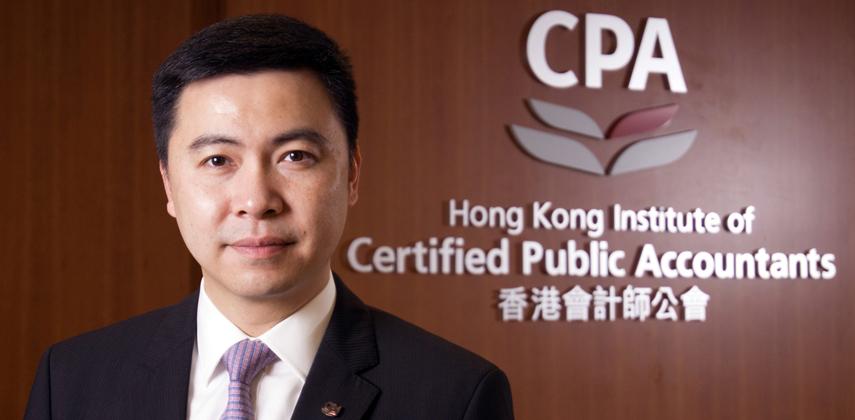Often referred to as the “language of business” because it deals with interpreting and communicating financial information, the accountancy profession can act as a key and open up a multitude of career paths and professional opportunities.
Dennis Ho, president of the Hong Kong Institute of Certified Public Accountants (HKICPA), says important roles for CPAs can be found in the private and commercial sectors, within government, and in non-profit making and non-government organisations.
“We have more than 39,000 members and about 60 per cent of them work in areas other than CPA firms,” says Ho, who is a partner at PricewaterhouseCoopers.
According to Ho, long gone are the days when accounting was looked upon solely as a tax and auditing profession. “Being an accountant involves interacting with people from different industries and professions. It means learning about the way businesses operate and offers plenty of scope to try different things.”
He adds that large firms often offer rotational assignments within internship and graduate programmes to allow employees to gain a variety of experiences. In some cases, young accountants can take advantage of international secondment opportunities.
While career-minded individuals might envisage a day when they are CFO or CEO of a large organisation, or play a key role in government – or even run their own business – Ho says it is vital they begin their careers by putting a strong foundation in place. This, he says, is a process that includes completing the HKICPA Qualification Programme (QP).
The QP is widely recognised as one of the most efficient ways of unlocking the doors into the world of finance and business. The HKICPA is the only body authorised to register and grant practicing certificates to CPAs in Hong Kong.
To become a fully-fledged CPA, candidates are required to complete four modules – auditing and information management, financial reporting, financial management and taxation – each lasting 15 weeks. They also need to pass an examination for each module and a final six-hour open book exam divided into two sessions. The QP is also open to non-accounting graduates, although they are required to attend a conversion programme.
While completing the QP programme is a major part of becoming a CPA, Ho says on-the-job training is also vital in building up technical competencies and soft skills. Although the experience at each accounting company may be different, he says CPA firms, especially the Big Four accounting firms, invest a lot of time and money in training and mentoring. Large accounting firms typically offer paid time to study for exams – which they also pay for – and membership to organisations like the HKICPA.
As part of work-life balance initiatives, accounting firms are increasingly organising social, sports and recreation activities. The HKICPA also supports members in their career development through hundreds of continuing professional development (CPD) programmes, specialised training programmes, specialist interest group activities, and HKICPA Source – the institute’s website for accounting and finance job listings, which provides a platform to match CPAs with prospective employers.
With Hong Kong’s Big Four each expected to hire about 300 new recruits this year, including fresh graduates, Ho says the outlook for those wishing to become a CPA is promising. “With so many options available to them, many of those joining the accounting profession today will become tomorrow’s leaders.”
WHEN AND WHERE: Date: October 3 |
This article appeared in the Classified Post print edition as Key to a great career.


